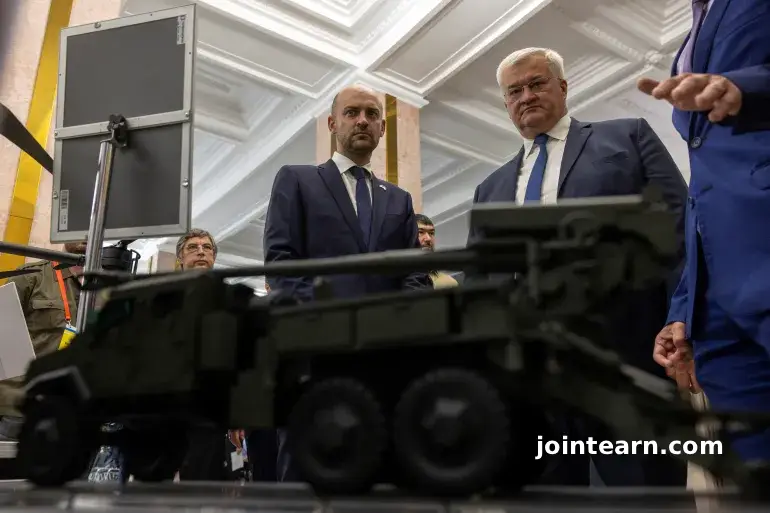
Analysts Say Europe Faces Growing Threat from Russia Without Unified Strategy
Security analysts are warning that Europe remains dangerously unprepared to respond to a new wave of Russian military and intelligence operations in the Baltic and North Seas, even as Moscow allegedly ramps up covert and hybrid warfare activities aimed at NATO member states.
Experts told Al Jazeera that Europe’s fragmented defence strategy, political divisions, and growing intelligence rift with the United States have left the continent “disoriented” as Russia intensifies its efforts to test Western resolve.
“Europe is no more ready today to face Russia’s military advances than it was in 1939 as Nazi troops were at the door,” warned Joseph Fitsanakis, assistant director at the Center for Applied Intelligence at Coastal Carolina University.
He added that while frontline nations such as Finland, Poland, and the Baltic states are preparing for escalation, Western Europe remains largely complacent amid Russian disinformation and sabotage campaigns.
Russian Hybrid Warfare: Drones, Disinformation, and ‘Shadow Fleet’
Since early 2024, Russia has been accused of escalating hybrid attacks — including drone incursions, cyber intrusions, and maritime espionage using a “shadow fleet” of oil tankers that operate beyond Western sanctions.
Security analysts believe these actions are part of a calculated “period of emergency” — a Russian military doctrine describing the phase immediately before full-scale war.
On September 10, 24 Russian Geran-2 drones breached NATO airspace, prompting Polish air defences to respond. In the following days, Russian MiG-31 and Su-35 fighter jets violated Estonian and Latvian airspace, while a Russian reconnaissance aircraft was intercepted over the Baltic Sea by German Eurofighters.
“The Russian military is actively preparing for war with NATO,” said Fitsanakis. “These incursions are not random — they’re intelligence-gathering missions designed to test NATO’s readiness.”
Europe’s Piecemeal Reaction and Lack of Coordination
Despite mounting provocations, Europe’s response has been piecemeal and uncoordinated. Analysts point to the October EU summit, where member states failed to agree on using frozen Russian assets to bolster Ukraine’s defences.
Belgium reportedly blocked the plan, while the issue of Russia’s shadow fleet — accused of espionage and illegal oil transport — was omitted from the summit conclusions altogether.
“There has been no coordinated EU policy to counter Russia’s hybrid warfare,” said Anna Wieslander, Northern Europe Director at the Atlantic Council. “Baltic surveillance boosts, counterdrone investments, and unified sanctions are desperately needed.”
Countries such as Poland and Denmark have acted individually — training drone defence units and inspecting suspicious tankers — but lack the EU-wide coordination necessary to confront Russia’s evolving tactics.
Rift Between Europe and the United States Deepens
Another layer of vulnerability stems from deteriorating transatlantic intelligence cooperation. Experts say European agencies are increasingly withholding information from their U.S. counterparts due to fears of political interference and leaks.
“American intelligence services are being systematically defanged by a dysfunctional political elite,” Fitsanakis explained. “At this point, no one is sure whose side the U.S. is really on.”
The lack of strategic clarity in Washington, combined with tensions over issues like Greenland and Canada, has further eroded Europe’s trust in the U.S. as a reliable NATO partner.
A Strategic Wake-Up Call for NATO and the EU
European intelligence chiefs, including Germany’s BND head Martin Jager, have warned that a NATO-Russia confrontation could occur within five to eight years — or sooner. Jager recently cautioned lawmakers not to assume a Russian attack will wait until 2029, calling the situation “a new quality of confrontation.”
Experts stress that without urgent coordination — including EU-wide military integration, counter-hybrid defences, and stronger intelligence sharing — Europe risks entering the next decade unprepared for a major security crisis.
“Russia is weaponising everything — from oil tankers to misinformation,” said retired U.S. Special Forces commander Demetries Andrew Grimes. “Europe must stop reacting in isolation and start acting like a unified defence bloc.”


Leave a Reply